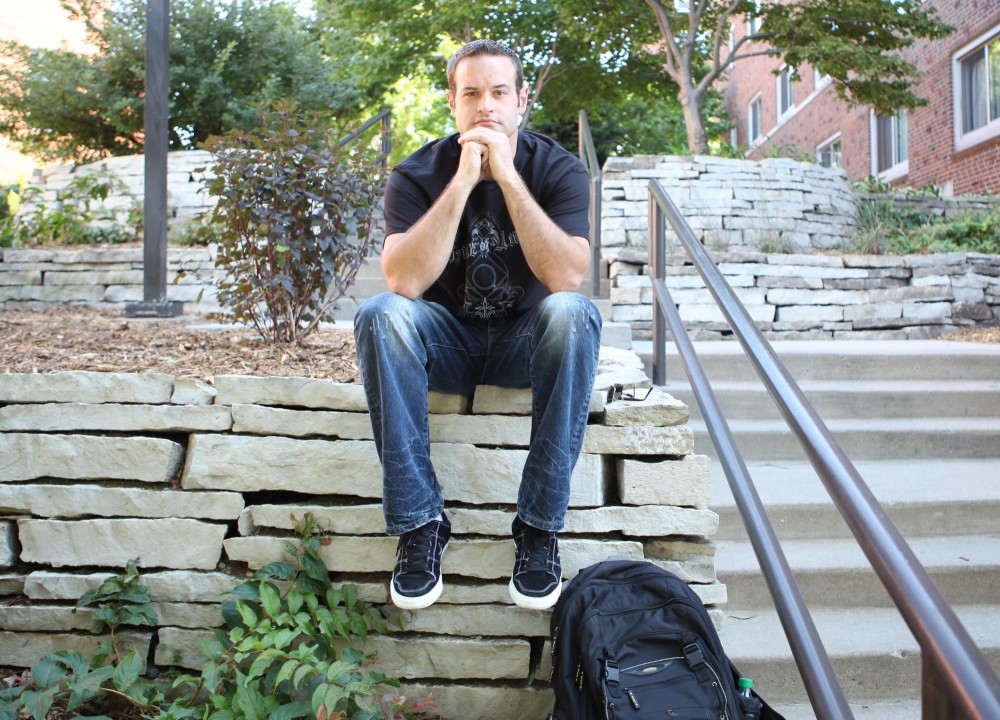Rob Stewart was 15 when he began using drugs. It became an addiction that led him to quit studying at Hamline University.
Now that heâÄôs four years sober and back at college, the 30-year-old senior utilizes a University of Minnesota student group and local Narcotics Anonymous meetings to maintain his sobriety.
Stewart was one of 15 students in SOBER âÄî a University student group sponsored by Boynton Health Service âÄî that celebrated recovery at a Minnesota Twins game Tuesday night.
It was one of several social activities for students in recovery that the group puts on during the school year.
Colleges nationwide, including some Big Ten schools, are developing recovery programs which offer support to students with alcohol or drug addictions.
But the University already has many of the services these new programs boast, said Dana Farley, an associate program director at Boynton Health Service.
âÄúI think some other universities have probably done a better job of packaging it and giving it the visibility they are,âÄù he said.
He said the Twin Cities offers many off-campus resources or support that is not âÄúfeasible for a college or university to typically offer.âÄù
âÄúIt does become a question of at what level does the University provide resources if they are available within the community?âÄù Farley said.
Farley argued that while a âÄúnetwork of supportâÄù is important for students in recovery, many of the resources vital to maintain sobriety are available to all students at Boynton, like counseling, substance-free housing in the residence halls and student groups.
In addition to recovery options in the Twin Cities âÄúwithin walking distanceâÄù of campus, the University student group Students Off Booze Enjoying Recovery provides a supportive atmosphere for Stewart and his peers.
But while the University may already offer these services to their students in recovery, two Big Ten universities âÄî Pennsylvania State University and the University of Michigan âÄî are launching recovery programs of their own.
The University of MichiganâÄôs Collegiate Recovery Program transitioned from a student organization that supported social activities like dances and bike rides to a program to support college students recovering from alcohol or other drug addictions.
âÄúWe always felt like it wasnâÄôt enough really,âÄù said Mary Jo Desprez, an alcohol and drug policy and prevention administrator at MichiganâÄôs University Health Service.
She said they replicated a program at Texas Tech University that has been in place for more than 25 years to provide networking opportunities, mentoring and case management. Case managers work on an individual basis to help recovering students navigate the university.
âÄúI think that could be a next step for us: to have a little bit more dedicated staff,âÄù Farley said. âÄúBut the problem with the budget cuts and the tightening of resources âÄî thatâÄôs difficult.âÄù
And the Collegiate Recovery Program at the University of Michigan is lacking just that âÄî funding.
While other universities may have the resources to provide scholarships to students who are committed to maintaining their sobriety while maintaining academic achievement, MichiganâÄôs program is only âÄú$10,000 and some office spaceâÄù right now, Desprez said.
âÄúWeâÄôre just right at that point of just building the infrastructure and really finding out what the needs are and dreaming big about what this can look like on a bigger scale,âÄù Desprez said.
She said eventually the dream is to be able to fund a full-time program coordinator and scholarships. To be able to support a larger program, she said they would explore other funding avenues.
The Collegiate Recovery Program currently supports 18 students in recovery and anticipates as many as 400 could be affiliated with it once word spreads, Desprez said.
âÄúEverybody really believes in this idea of second chances,âÄù she said.
Desprez said recovery programs are critical at universities because college is a stressful period of transition.
âÄúA college campus can be a really vulnerable place for somebody who is in recovery,âÄù Desprez said.
While college adds significant stress for all college students who change their living environment, schedule, food, finances, work, etc., Farley said students in recovery have the added challenge of being in a âÄúwetâÄù culture, where alcohol is involved in many social events.
About 73 percent of University students reported current alcohol use âÄî defined as alcohol drank within the last 30 days âÄî according to a 2010 BoyntonâÄôs College Student Health Survey of the Twin Cities campus.
When he was younger, Stewart used drugs around Dinkytown, and said he can see the pull for younger students in recovery when they see other students partying all the time.
Part of recovery is feeling alone, he said, and joining SOBER can help students who feel like everyone around them is drinking.
âÄúItâÄôs just easier to see those drunk people,âÄù Stewart said.


